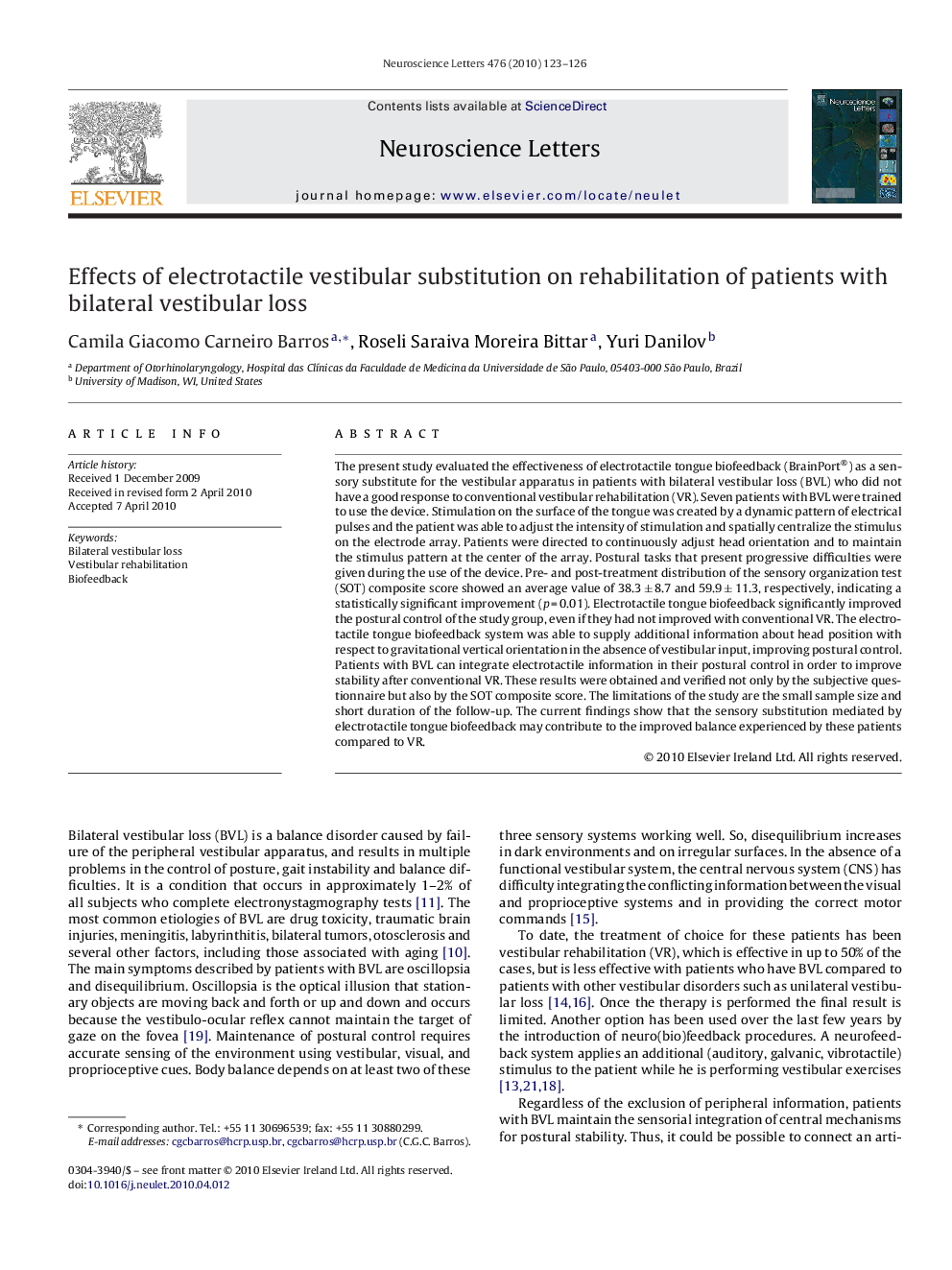| Article ID | Journal | Published Year | Pages | File Type |
|---|---|---|---|---|
| 4346327 | Neuroscience Letters | 2010 | 4 Pages |
Abstract
The present study evaluated the effectiveness of electrotactile tongue biofeedback (BrainPort®) as a sensory substitute for the vestibular apparatus in patients with bilateral vestibular loss (BVL) who did not have a good response to conventional vestibular rehabilitation (VR). Seven patients with BVL were trained to use the device. Stimulation on the surface of the tongue was created by a dynamic pattern of electrical pulses and the patient was able to adjust the intensity of stimulation and spatially centralize the stimulus on the electrode array. Patients were directed to continuously adjust head orientation and to maintain the stimulus pattern at the center of the array. Postural tasks that present progressive difficulties were given during the use of the device. Pre- and post-treatment distribution of the sensory organization test (SOT) composite score showed an average value of 38.3 ± 8.7 and 59.9 ± 11.3, respectively, indicating a statistically significant improvement (p = 0.01). Electrotactile tongue biofeedback significantly improved the postural control of the study group, even if they had not improved with conventional VR. The electrotactile tongue biofeedback system was able to supply additional information about head position with respect to gravitational vertical orientation in the absence of vestibular input, improving postural control. Patients with BVL can integrate electrotactile information in their postural control in order to improve stability after conventional VR. These results were obtained and verified not only by the subjective questionnaire but also by the SOT composite score. The limitations of the study are the small sample size and short duration of the follow-up. The current findings show that the sensory substitution mediated by electrotactile tongue biofeedback may contribute to the improved balance experienced by these patients compared to VR.
Related Topics
Life Sciences
Neuroscience
Neuroscience (General)
Authors
Camila Giacomo Carneiro Barros, Roseli Saraiva Moreira Bittar, Yuri Danilov,
